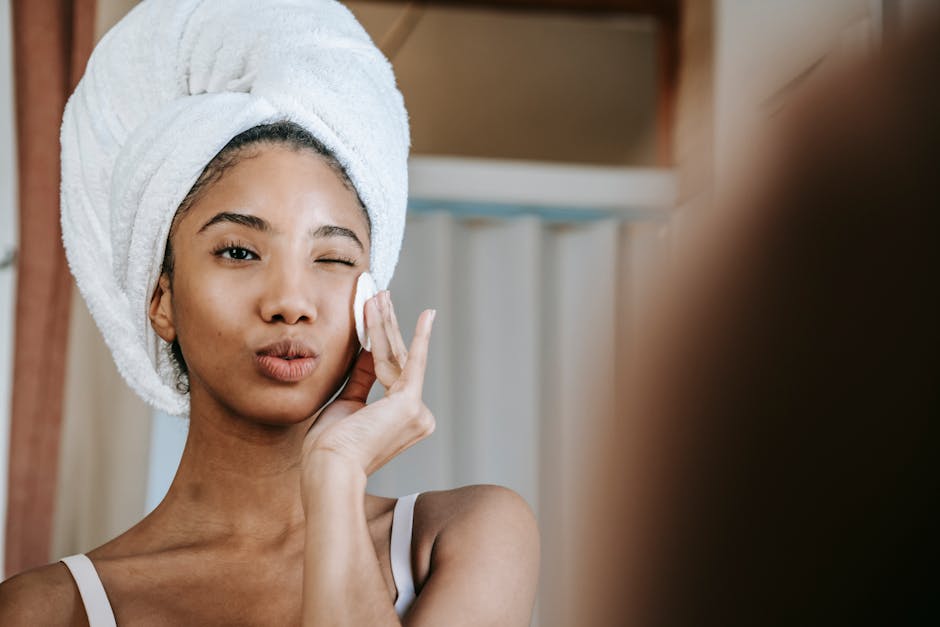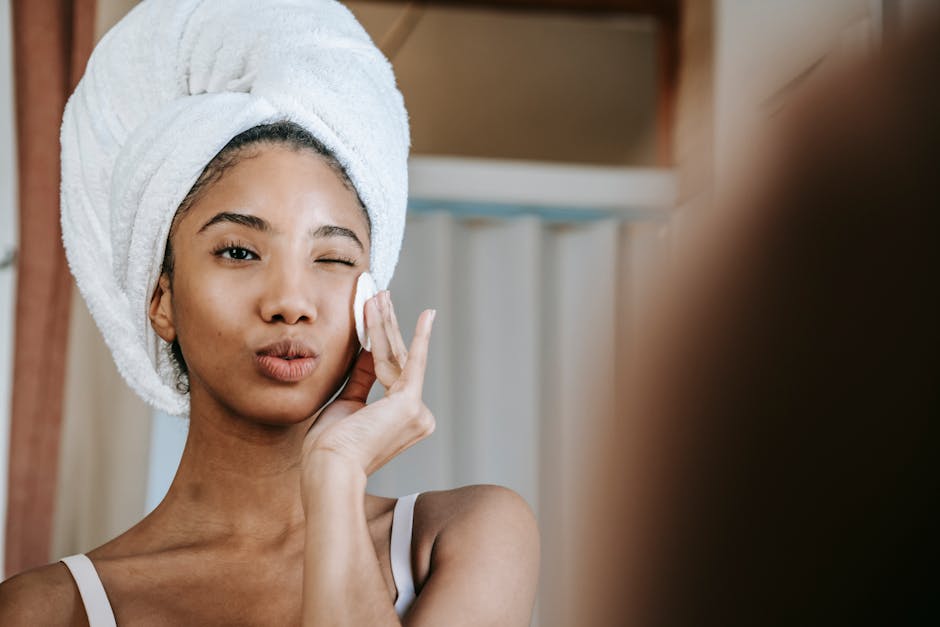

5 Essential Tips for Managing Sensitive Scalp Issues in Austin, Texas
Understanding sensitive scalp issues
Sensitive scalp issues can be uncomfortable and frustrating. They can be caused by various factors like harsh hair products, stress, or skin conditions like eczema or psoriasis. It’s essential to identify the root cause of your scalp sensitivity to effectively manage it. Here are key points to help you understand sensitive scalp issues:
- Symptoms: Itching, redness, flakiness, or a burning sensation are common signs of a sensitive scalp.
- Triggers: Pay attention to what triggers flare-ups, such as certain shampoos or stress.
- Care Routine: Opt for gentle, fragrance-free hair products and avoid excessive heat styling.
- Consult a Professional: If your scalp sensitivity persists, consult a dermatologist or a Trichologist for personalized advice.
-
Lifestyle Changes: Incorporate stress-reducing activities and a balanced diet to support scalp health.
Common causes of scalp sensitivity
Certain factors like using harsh hair products, overwashing your hair, having a skin condition like eczema or psoriasis, or being sensitive to certain ingredients in hair products can cause your scalp to become sensitive. It’s essential to determine the root cause of your scalp sensitivity to effectively manage it.
Recommended hair care products for sensitive scalp
When dealing with a sensitive scalp, it’s crucial to choose hair care products that are gentle and soothing. Here are some recommended products to help you manage sensitive scalp issues effectively:
- Look for shampoos and conditioners that are labeled as “gentle” or “for sensitive scalps” to avoid harsh ingredients that can irritate your scalp.
- Opt for products that are fragrance-free and free of parabens and sulfates, as these can further aggravate sensitivity.
- Consider using natural or organic hair care products, as they are less likely to contain harsh chemicals that may cause irritation.
- Choose products specifically designed for sensitive skin, as they are formulated to be gentle and non-irritating.
- Consult a dermatologist or hair care professional for personalized product recommendations tailored to your scalp’s specific needs.
Lifestyle changes to manage sensitive scalp
If you’re dealing with a sensitive scalp, making a few lifestyle changes can help alleviate discomfort and improve scalp health. Here are some simple tips to consider:
- Be mindful of your hair care products: Opt for gentle, fragrance-free shampoos and conditioners to avoid irritating your scalp.
- Avoid harsh styling products: Steer clear of products containing alcohol, sulfates, and other harsh chemicals that can exacerbate sensitivity.
- Wash your hair regularly: Keeping your scalp clean can help prevent buildup and reduce irritation.
- Protect your scalp from the sun: Wear a hat or use a sunscreen spray to shield your scalp from harmful UV rays.
- Consider your diet: Eating a balanced diet rich in vitamins and minerals can promote overall scalp health.
By incorporating these simple adjustments into your routine, you can better manage sensitive scalp issues and promote a healthier, more comfortable scalp.
Professional treatments and solutions for sensitive scalp
Professional treatments for a sensitive scalp can include scalp treatments, medicated shampoos, moisturizing masks, and scalp massages to help soothe irritation and promote a healthier scalp. In some cases, prescription medications or topical corticosteroids may be recommended by a dermatologist for more severe scalp conditions. Avoiding harsh chemicals in hair products and maintaining a consistent haircare routine can also help manage sensitivity.
How weather conditions in Austin can affect scalp sensitivity
Weather conditions in Austin can greatly impact your scalp’s sensitivity. The hot and humid climate in Austin can lead to increased scalp irritation and flakiness, especially during the summer months. UV rays from the sun can also worsen scalp conditions like itchiness and dryness. To protect your scalp, consider wearing a hat or using a scalp-friendly sunscreen when outdoors. Additionally, staying hydrated and using a gentle, moisturizing shampoo can help alleviate any discomfort caused by the weather.
Tips for preventing scalp irritation
If you’re dealing with scalp irritation, here are some simple tips to help prevent it on your own:
- Choose gentle hair care products: Look for shampoos and conditioners that are specifically formulated for sensitive scalps.
- Avoid hot water: Stick to lukewarm water when washing your hair, as hot water can strip moisture from your scalp.
- Protect your scalp from the sun: Wear a hat or use a sunscreen spray on your scalp when spending time outdoors.
- Limit the use of styling products: Too many styling products can build up on your scalp and lead to irritation, so use them sparingly.
-
Stay hydrated: Drinking enough water can help keep your scalp hydrated from the inside out.
Best practices for washing and conditioning sensitive scalp
When washing and conditioning a sensitive scalp, use gentle, sulfate-free shampoos and conditioners to avoid irritation. Opting for products labeled as “for sensitive scalp” can be beneficial. Avoid hot water when washing your hair, as it can strip the scalp of its natural oils, leading to further sensitivity. Massage the scalp gently while applying shampoo and rinse thoroughly to prevent product buildup. Consider using a wide-tooth comb to detangle your hair, starting from the ends and working your way up to the roots to prevent unnecessary pulling on the scalp. Lastly, pat your hair dry with a soft towel instead of vigorously rubbing it, which can cause friction and aggravate scalp sensitivity.
Natural remedies for soothing scalp sensitivity
If you’re dealing with a sensitive scalp, natural remedies can help soothe the discomfort. Here are some simple tips to try at home:
- Tea Tree Oil: Known for its anti-inflammatory properties, tea tree oil can calm scalp irritation. Mix a few drops with a carrier oil and massage into your scalp.
- Aloe Vera: This soothing plant can provide relief for a sensitive scalp. Apply fresh aloe vera gel directly to the scalp, leave it on for about 30 minutes, and then rinse it off.
- Coconut Oil: Coconut oil is a natural moisturizer that can help alleviate dryness and itching. Warm up the oil and massage it into your scalp before washing your hair.
- Apple Cider Vinegar: Dilute apple cider vinegar with water and use it as a rinse after shampooing. It can help rebalance the scalp’s pH levels and reduce itchiness.
-
Oatmeal: Create a soothing paste by mixing oatmeal with water and applying it to your scalp for about 20 minutes before rinsing. Oatmeal has anti-inflammatory properties that can calm sensitive skin.
Conclusion and summary
In summary, managing a sensitive scalp in Austin, Texas requires attention to detail and care. Remember to choose hair care products labeled as ‘for sensitive scalps’ to prevent irritation. It’s crucial to avoid excessive heat styling and opt for gentle hair treatments. Regular scalp massages can help improve blood circulation and alleviate discomfort. Consulting a dermatologist for severe scalp issues is advisable. Lastly, prioritize maintaining a healthy diet and staying hydrated to promote scalp health.

